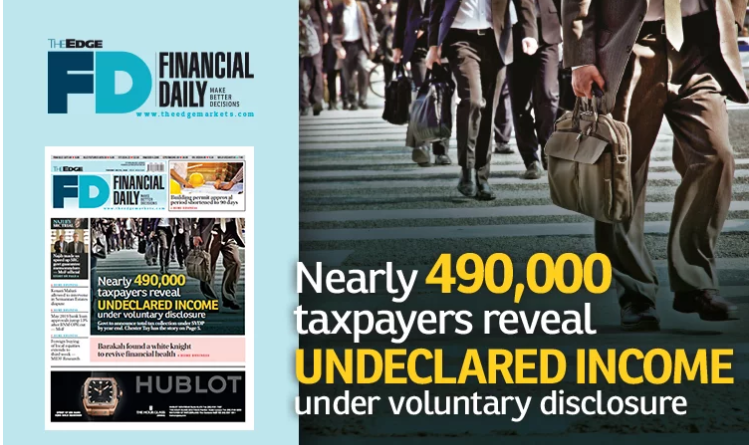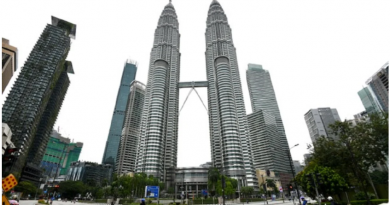Nearly 490,000 taxpayers reveal undeclared income
KUALA LUMPUR: Some 486,360 taxpayers have stepped forward to reveal their undeclared income to the government over the past eight months since the Inland Revenue Board (IRB) launched the special voluntary disclosure programme (SVDP) on Nov 3 last year, according to Deputy Finance Minister Datuk Amiruddin Hamzah.
However, Amiruddin did not reveal the amount of income tax that IRB has collected under the SVDP.
The government will announce the total tax collection under SVDP by year end, he told Parliament yesterday.
“We hope more will participate in the SVDP now because the penalty is significantly lower, and after the programme expires we believe with the automatic exchange of information initiative (AEOI) by the Organisation for Economic Co-operation and Development (OECD), it will be more effective for us to detect offshore banking activities,” said Amiruddin.
IRB chief executive officer Datuk Seri Sabin Samitah in early January was quoted by the media as saying the SVDP aimed to attract at least one million taxpayers with an estimated RM10 billion in tax collection.
The government has extended the deadline for the SVDP. The first phase of the programme was originally ended on March 31 this year, but was extended to June 30. The penalty for the first phase was 10% on the amount of tax payable.
The expiry of the second phase of the SVDP, extended to Sept 30 this year, has a penalty of 15% of tax payable.
Without the SVDP, penalties against undeclared income can go up to between 45% and 300% on the amount of tax payable versus the 10% and 15% under the tax amnesty programme, according to the ministry of finance.
This does not only cater to those in Malaysia who keep their assets in Malaysia; it also applies to Malaysians with money offshore.
Many may not be aware that Malaysia, along with 99 other tax jurisdictions, has committed to the AEOI on financial accounts maintained within its authority by tax residents of other participating jurisdictions.
The Edge Malaysia weekly last month reported that the AEOI is done through the OECD’s Common Reporting Standard (CRS) where the responsibility is seen falling on financial institutions to identify and document information on reportable individual and entity account holders.
Reportable information will then be passed on to the tax authorities, which will exchange information with the relevant foreign tax authorities. The CRS aims to combat tax evasion and ensure that taxpayers pay the right amount of taxes.
IRB achieved a new record in direct tax collection last year, with RM137.035 billion collected, which is 11.13% or RM13.723 billion more than the RM123.312 billion collected in 2017.
The corporate component was the biggest contributor at RM70.036 billion or 51.11%, followed by the individual component at RM36.065 billion or 26.32%. Tax revenue from petroleum was RM20.082 billion or 14.66%, while stamp duty collection stood at RM5.934 billion or 4.33%.
Source: TheEdgeMarkets


